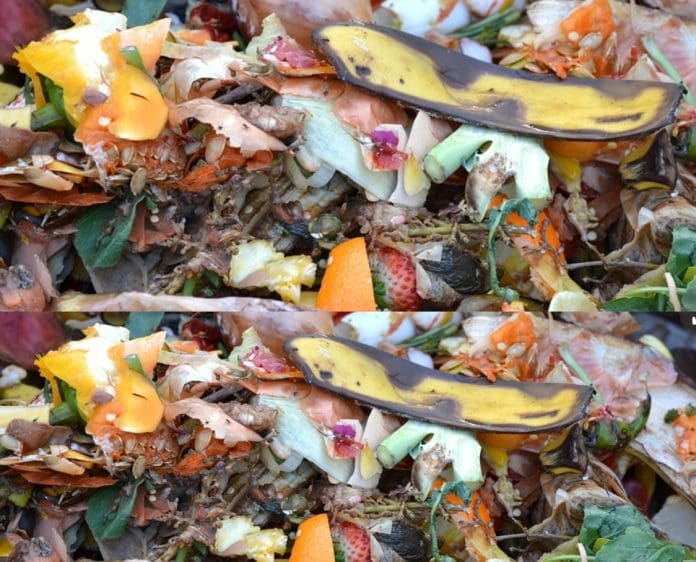It is with great sadness that we announce the passing of Dr. Stuart Farrimond, aged 43, who died peacefully in his sleep at Dorothy House Hospice surrounded by friends and family after battling a long illness.
Dr Stu’s legacy as a science and medical writer, presenter, and educator lives on through his popular blog — stuartfarrimond.com — and his bestselling ‘The Science Of’ book series.
Stu’s passion for making science accessible and the experiences he openly shared as a brain tumour researcher and cancer survivor inspired many. He will be deeply missed.
By the end of the meal, the table was awash with satisfied murmurs and the clinking of cutlery. A rare treat had been enjoyed: succulent, medium-rare sirloin steak, drenched in creamy peppercorn sauce, nestled beside vibrant al dente vegetables. But just as the moment threatened to settle into fond memory, I watched, stunned, as a near-untouched steak — two-thirds of a generous 10 oz. cut—was unceremoniously scraped into the kitchen bin.
It wasn’t just the waste of good food, or the loss of what could have filled a week’s worth of sandwiches. What truly gnawed at me was the quiet environmental catastrophe that this single act of waste would eventually become. That discarded steak, like much of our uneaten food, was now doomed to end its life not in someone’s stomach, but in a dark, airless landfill — slowly belching out methane, a gas far more potent than the carbon dioxide that usually dominates climate discussions.
Biodegradable Doesn’t Mean Benign
“But isn’t food biodegradable?” some might ask, and yes, in principle it is. We’ve all watched apple cores and banana skins transform into mush over time, given the right outdoor conditions. Nature’s recycling system — powered by worms, fungi, bacteria, and a host of other decomposers — is nothing short of miraculous. It returns organic matter to the earth with grace and efficiency.
The problem is, landfill is not the great outdoors.
In the stifling, suffocated bowels of a rubbish tip, the natural decomposition process is flipped upside down. There are no worms or beetles burrowing through rotting lettuce, no oxygen to help aerobic microbes do their work. Instead, anaerobic bacteria — those that thrive without oxygen — take over. These microbes churn out a foul brew of acids, alcohols, and methane gas. That beautiful steak, once a symbol of indulgence, now contributes to a poisonous cocktail of greenhouse emissions.
Methane: The Invisible Menace
Methane doesn’t carry the telltale stench of decay (it’s odourless), but it’s among the most dangerous gases we emit. Often mislabelled as the culprit behind flatulence (it isn’t), methane is, in fact, a greenhouse gas up to 80 times more effective at trapping heat than carbon dioxide over a 20-year period. It’s why climate scientists are deeply concerned about livestock emissions — cows and sheep produce vast quantities through their digestive systems — and why our gas hobs are under increasing scrutiny.
So when you throw away a lamb chop or dump half a casserole, you’re not just wasting food. You’re sending yet more methane into the sky, fuelling the climate crisis one binful at a time.
The Alarming Scale of Food Waste
In the UK, the average household discards about 3.4kg of food every week — roughly eight meals. Scale that up nationally, and the environmental impact is staggering. If food waste were a country, it would be the third-largest emitter of greenhouse gases in the world, behind only China and the United States.
Put another way, the methane from rotting UK household food waste is equivalent to burning 146 litres of petrol every week per home — nearly three tanks of fuel.
A Return to Earth: The Power of Composting
But it doesn’t have to be this way. We can keep food waste from becoming a methane machine. Composting, done properly, mimics the natural process of decay. Instead of suffocating waste in plastic bags and burying it, we can help it breathe and break down cleanly — returning nutrients to the earth rather than gases to the air.
It’s not complicated: collect food scraps like vegetable peels, coffee grounds, and eggshells in a sealed bin. Mix them with equal parts shredded newspaper, cardboard, or dry leaves to maintain a balanced carbon-to-nitrogen ratio. Stir occasionally to let in air. After a few months, the contents should turn into dark, crumbly compost that smells earthy and clean.
This nutrient-rich material can be dug into garden beds or laid on top as mulch, nourishing plants and improving soil health. And if you don’t have a garden, a neighbour or community garden might gratefully accept it.
A Fork in the Road
We live in a world where every bite counts — not just for our bodies, but for the planet. Scraping food into the bin might seem harmless, but it’s one of the most preventable ways we’re fuelling the climate emergency.
So next time you’re tempted to over-serve, over-shop, or overlook those leftovers, remember the journey your scraps will take. Better yet, compost them — and turn your waste into something that gives back.
Because keeping the peace at dinner shouldn’t mean staying silent about what happens afterwards.
Inspired by Dr. Stuart Farrimond.







